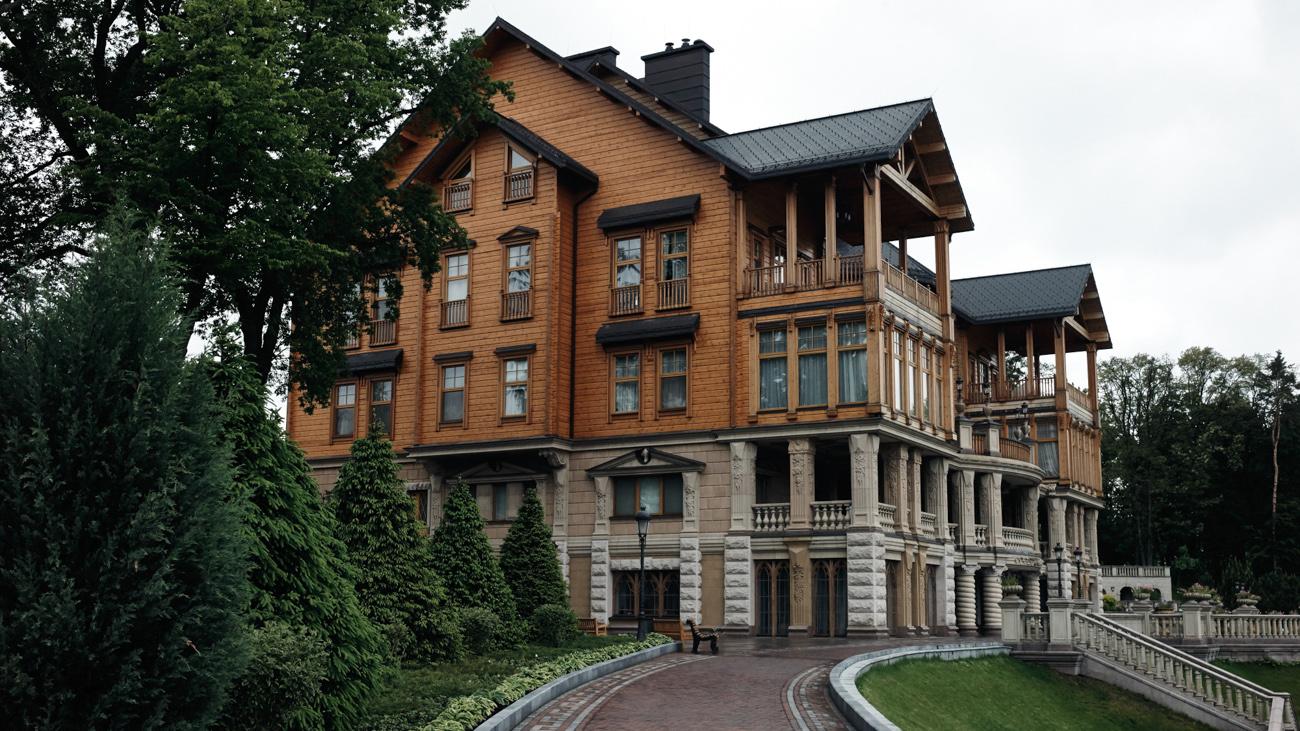Ukrainians vowed to turn their ex-president’s estate into a ‘Museum of Corruption.’ But it’s something else now.
The main club house inside Mezhgorye, the residence of Ukraine's ousted president Victor Yanukovych.
On February 23, 2014, stunned Ukrainians came en masse to the former nature preserve north of Kiev to see what their just-departed president had built with their tax dollars.
What they found surprised even the most cynical: A private zoo. A restaurant on a replica of a Spanish galleon. A main house built to resemble an oversized Finnish hunting lodge, with a three-story-tall main room. Acres of manicured gardens with statuary. A glass-walled bath-house overlooking a private fountain.
The spark for the Euromaidan protests that ousted Viktor Yanukovych was his refusal to sign a long-planned agreement to bring the country closer to the European Union. But his administration’s corruption was a close second, and investigations into his lavish estate had fueled resentment for years.
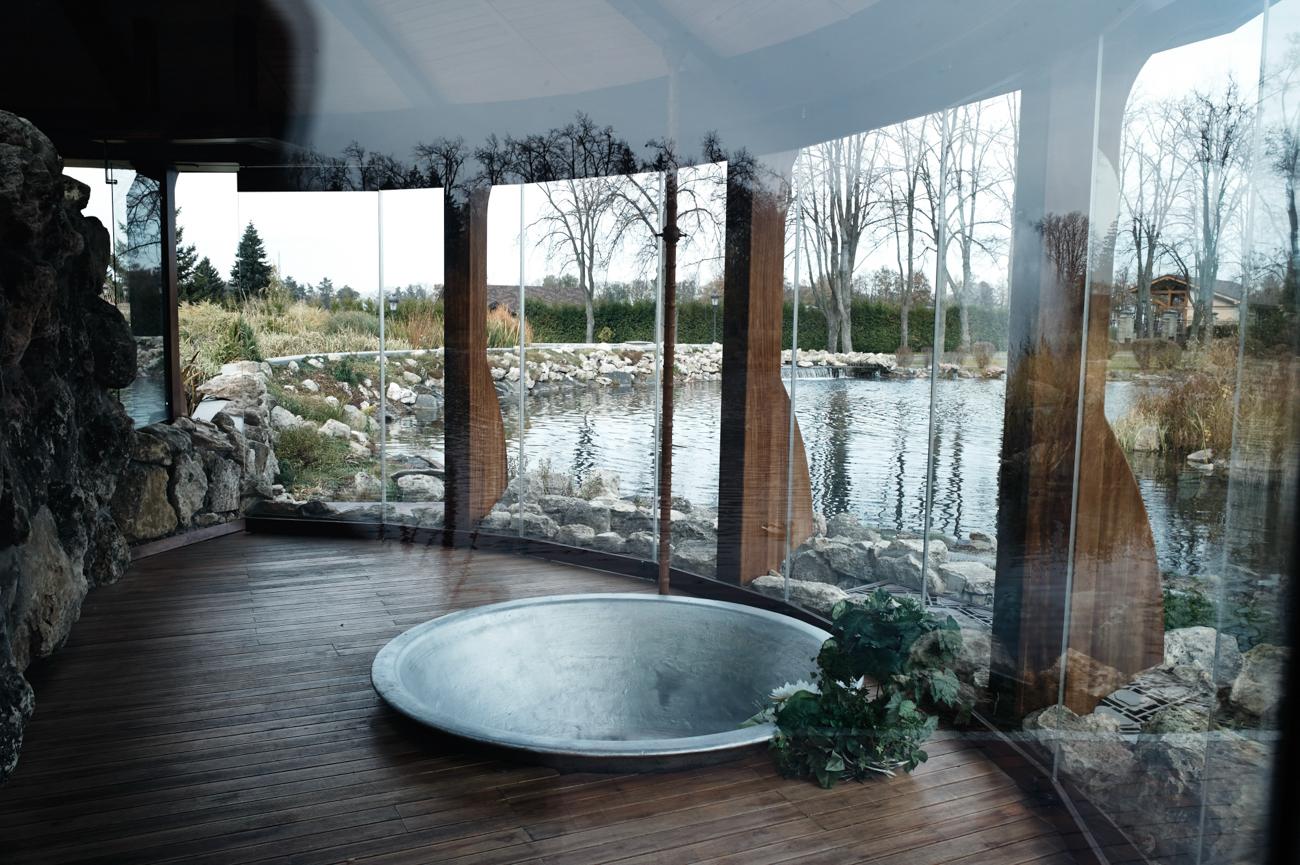
The residence, called Mezhyhirya, was opened to the public soon after Yanukovych fled to Russia, and it’s been open for tours ever since. But hopes that it would become a state-run “Museum of Corruption” have faded as bill after bill to prosecute the former president and seize his assets has stalled in Ukraine’s parliament.
The grounds, which he’d privatized, are now back under state control, says Denys Bigus, an investigative journalist who helped create YanukovychLeaks, a site that has compiled the documents the former president left behind.
But Bigus says the buildings still belong to Tantalit, the real estate holding company that owns several properties on behalf of the ex-president and his extended family.
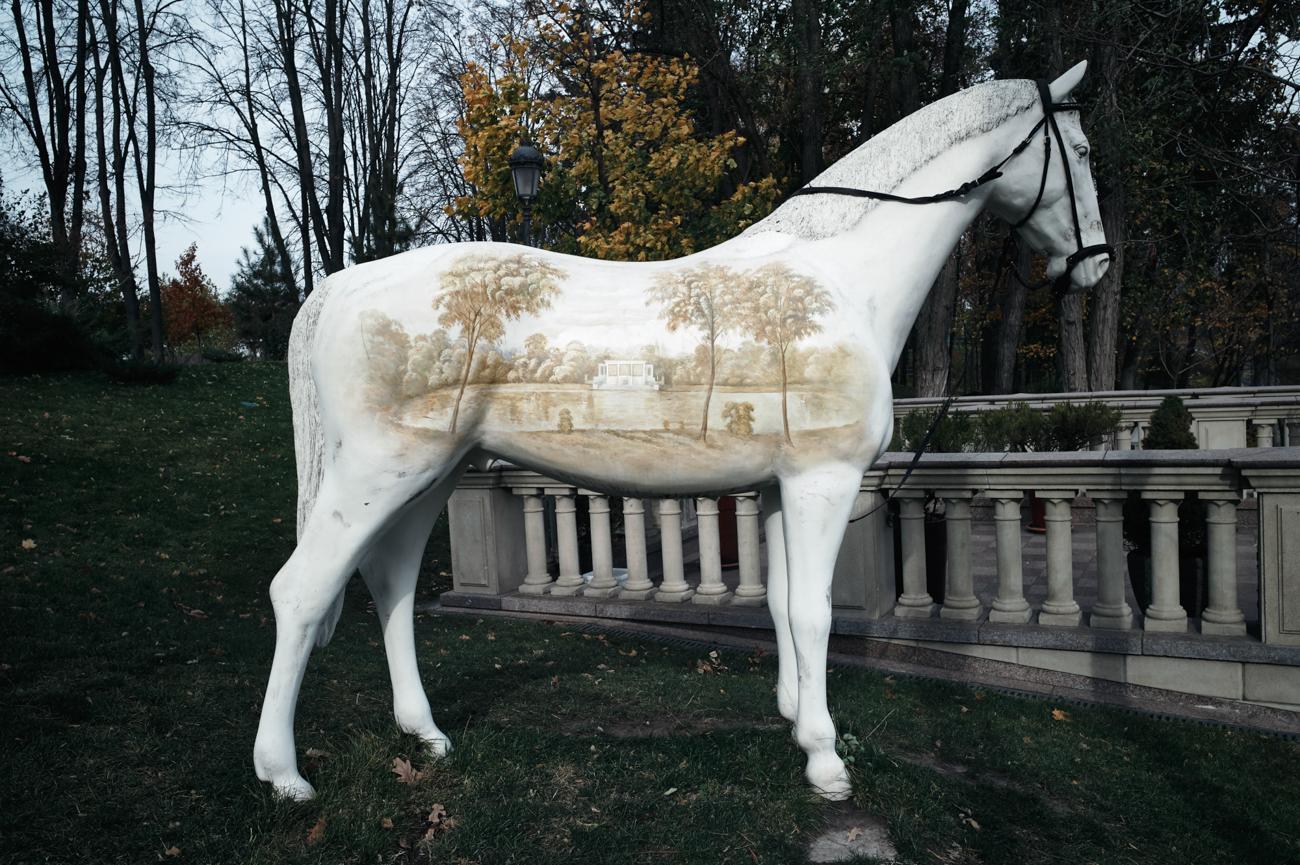
Meanwhile a group of “volunteers” — protesters from Euromaidan — took over Mezhyhirya and haven't left since. They man its gates, charging admission to the grounds ($3) and for private tours ($8).
They even have people manned at outdoor bathrooms to collect $0.20 for use. The money, along with profit from the sales of Yanukovych and Putin-mocking souvenirs, goes to pay groundskeepers and to provide security against looting.
How it covers all that is not exactly clear, since the volunteer group doesn’t pay taxes or make its books public. Although some art is missing from the walls and certain tchotchkes (like a famous golden loaf of bread) have gone missing, overall the estate looks spotless and well-maintained.
Its murky status, however, makes for an odd visitor experience.
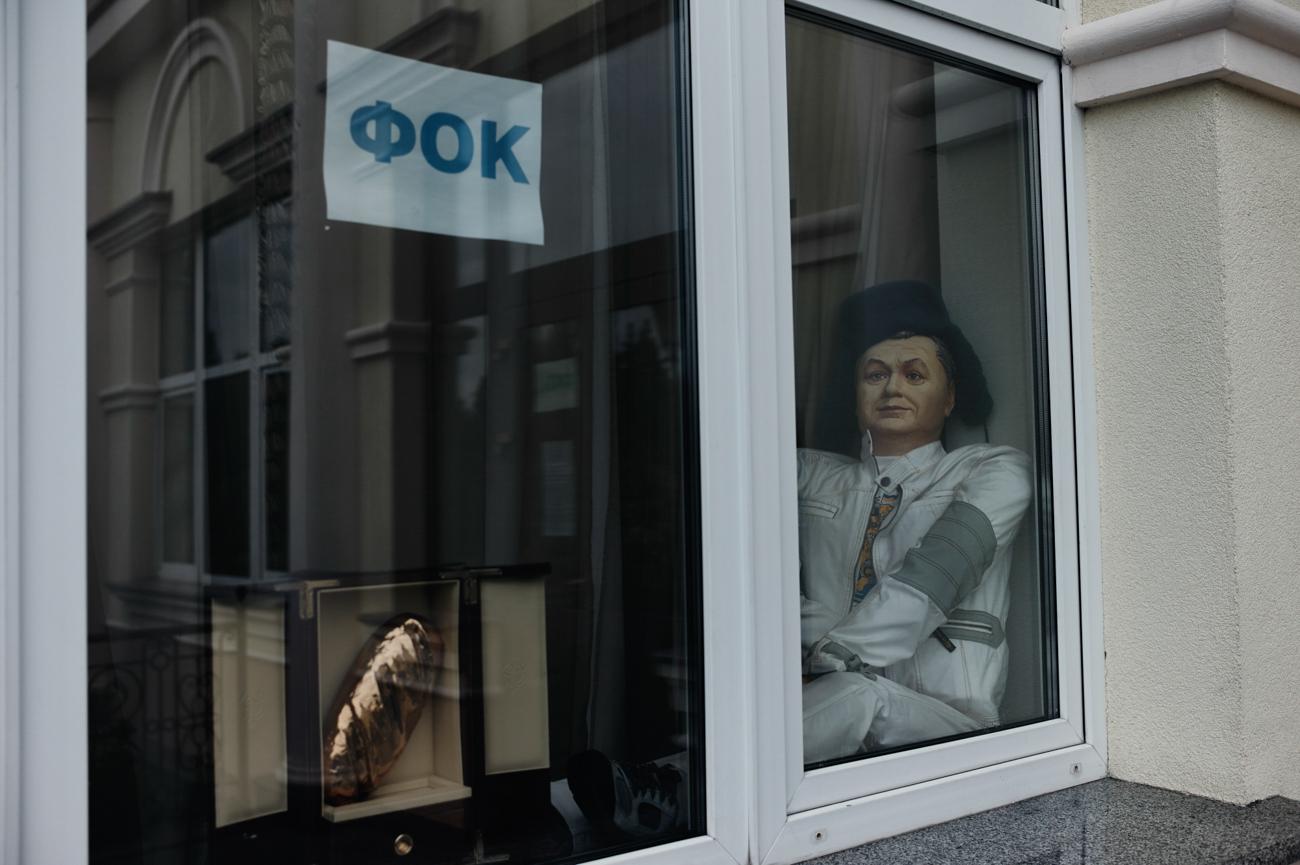
We gather for a tour at the entrance to the “physical health complex” (noted by its unfortunate Cyrillic acronym, ФОК). Although a sign on the door insists all tours will be conducted in Ukrainian, our guide Petro Oliynyk has decided to accommodate some Russian-speaking visitors. He comes from the western Ukrainian city of Lviv, and he has basically been ensconced here since Yanukovych fled.
Oliynyk has a Ukrainian emblem hanging from his neck and an even larger one embroidered in gold on the red flag draped around his shoulders. It’s a color combo favored by the Ukrainian Liberation Army; their black-and-red flag also flies above the ФОК. Many Ukrainians see the red-and-black flag as a symbol of fighting the Soviets — but it’s also controversial, thanks to the Liberation Army’s World War II-era violence against Russians, Poles and Jews.
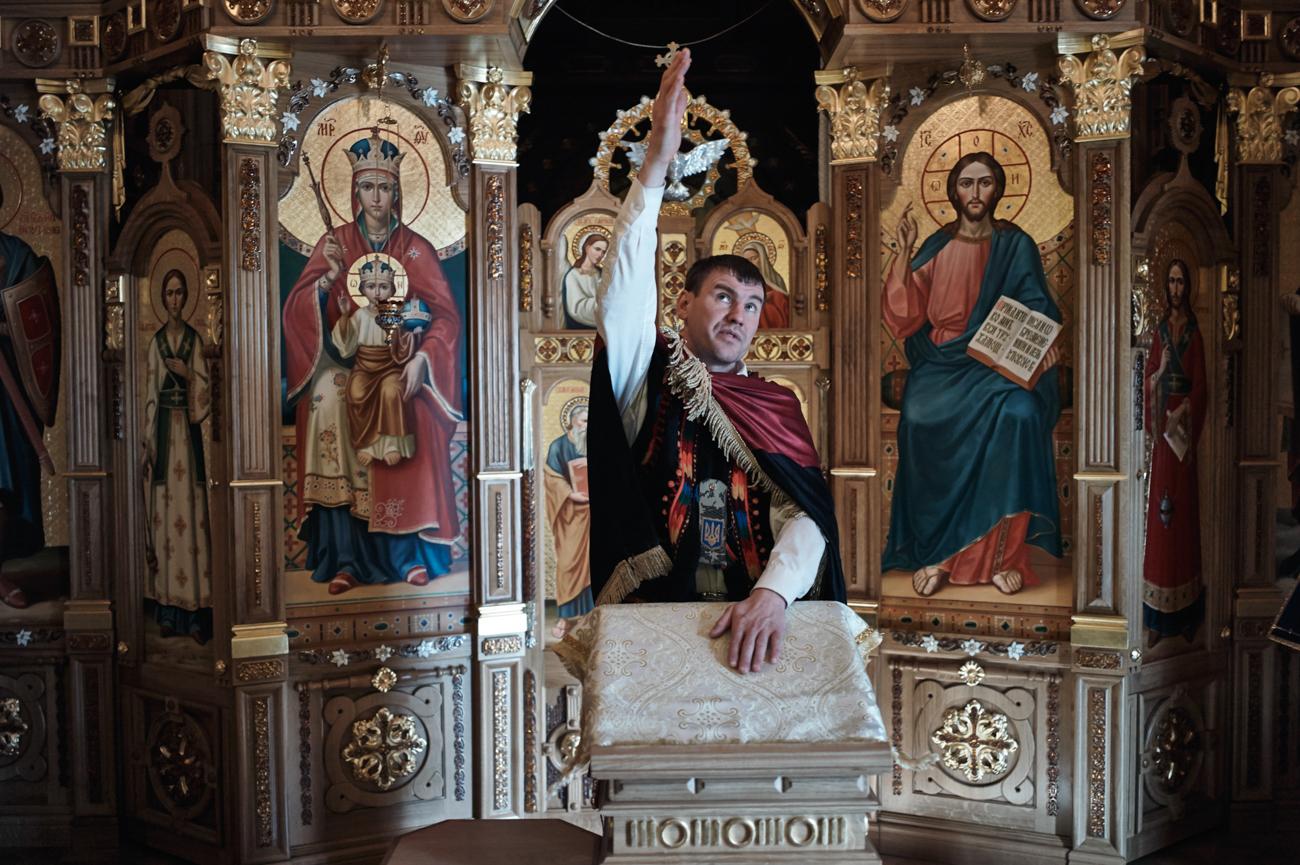
But Olynik doesn’t want to talk about the past, or how the Ukrainian Insurgent Army has come to run this place, if indeed it does. Mainly Olynik wants to talk about Ukraine’s current president, Petro Poroshenko.
“Poroshenko sold Crimea to Putin, and handed him part of [Eastern Ukraine] so he could loot and destroy it,” Oliynyk says at the start of our tour, which pretty much turns into an hour-long harangue against Ukraine’s leaders. Though there are occasional breaks to point out hand-carved flooring or a suit of armor, a salt-rock sauna or room-sized closet.
By midway through the tour, few in the group are listening to Oliynyk anymore, mesmerized instead by massive chandeliers and a limited-edition replica of the white piano that John Lennon gave Yoko Ono. Steinway & Sons made only 100 of them, and they’re worth about $90,000 each.
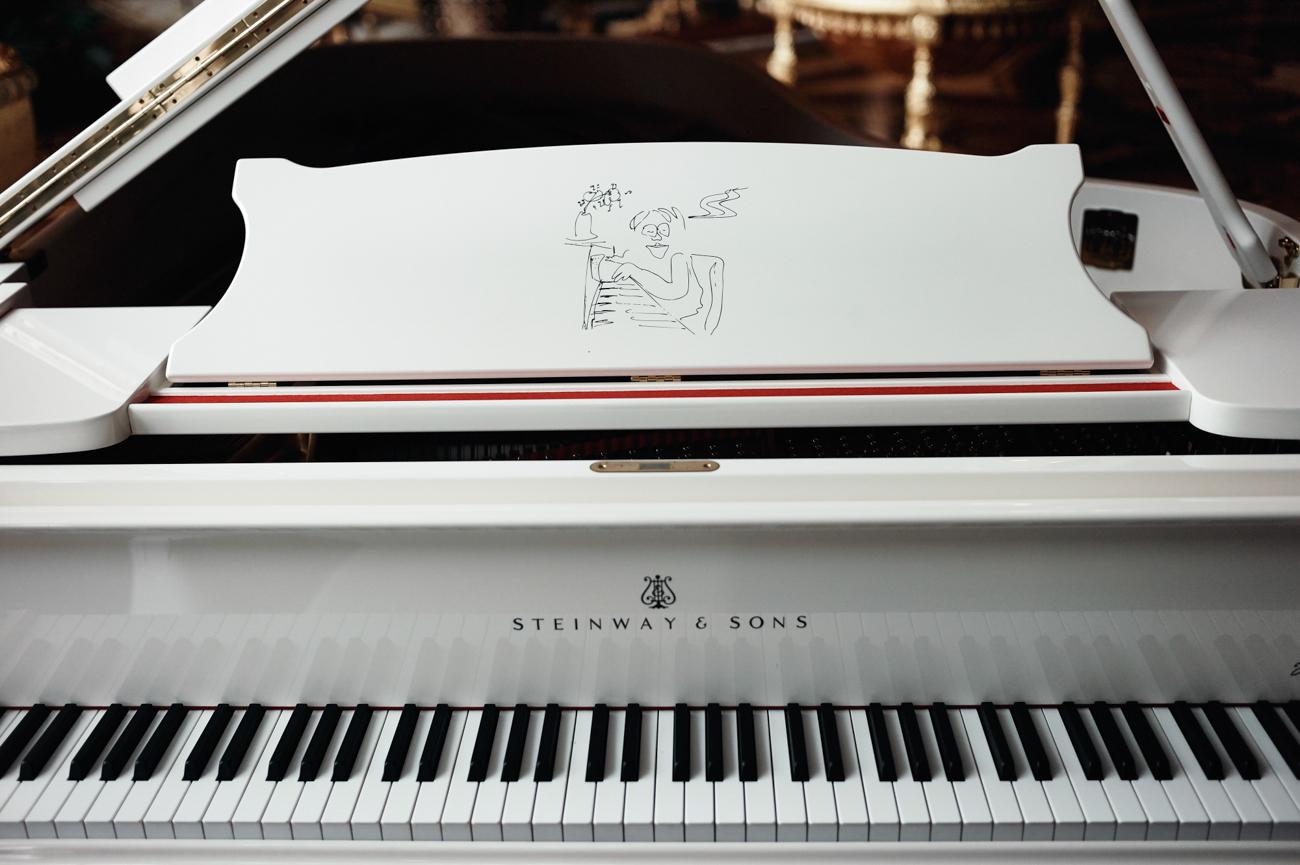
Oliynyk does say he’d like to see all of Mezhyriya nationalized, including the extensive spa and pseudo-hunting lodge. But it’s not clear how an eccentric — not to mention politically-minded — guide such as himself could remain under a more professional administration.
Related: A babushka in Ukraine's forbidden mansion (VIDEO)
For his part, journalist Denys Bigus thinks the Ukrainian state, with its more serious troubles, doesn’t really want to take on the burden of running this place — as a Museum of Corruption, or anything else.
“You can’t turn it in anything,” he says. “It’s not comfortable for anything except [the] living of some dictator,” he laughs.
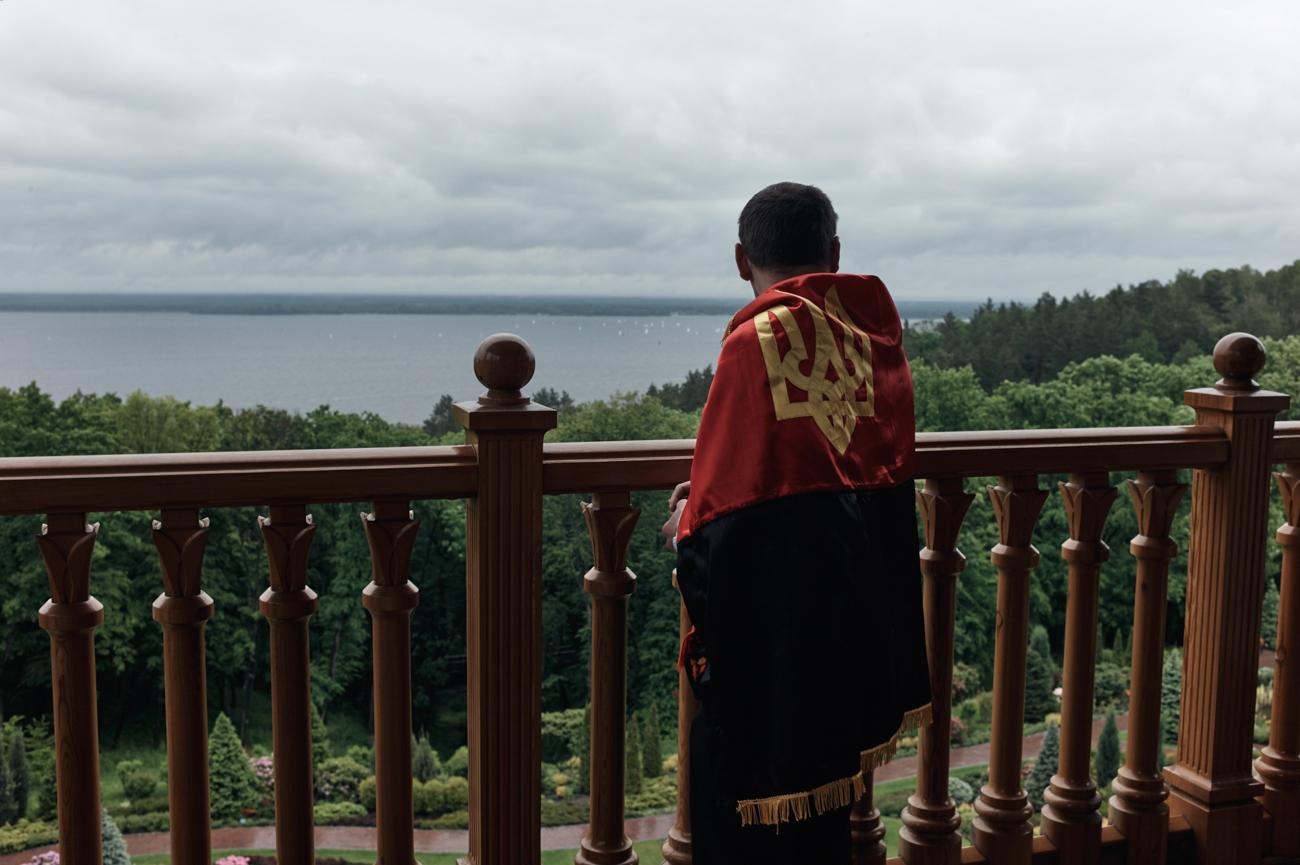
In the meantime, Oliynyk will keep giving tours to the curious, weaving between overstuffed furniture and planters lined with crocodile hide, opening door after door with his enormous set of keys. He’s added a few touches, moving a statue here, adding caged birds to fill the cavernous main hall with sound.
“It’s an example of how people have self-organized with no single leader or boss,” he concludes as we leave. “People can live like this in this country. We don’t need a government.”
This story was produced with support from the Pulitzer Center on Crisis Reporting.
Our coverage reaches millions each week, but only a small fraction of listeners contribute to sustain our program. We still need 224 more people to donate $100 or $10/monthly to unlock our $67,000 match. Will you help us get there today?
